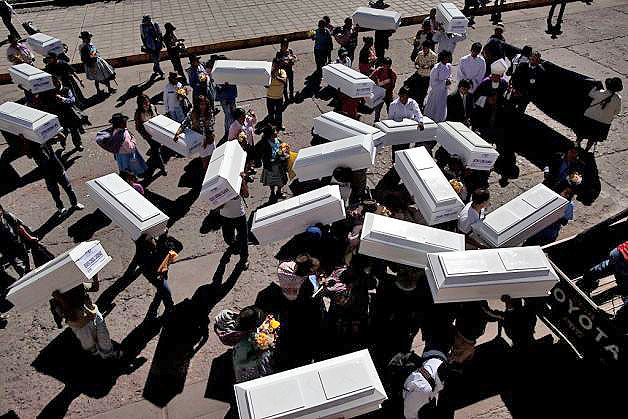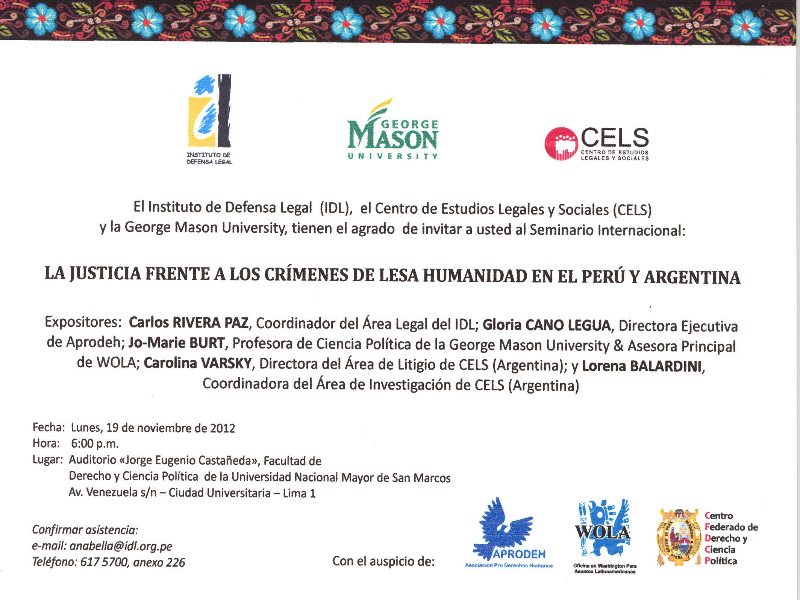Huancavelica, Peru
For almost a quarter-century, they have scoured the mountains of Peru’s poorest region in search of the son hauled away by soldiers in the middle of the night. During their futile search, the couple found 70 clandestine burial sites and unearthed three dozen bodies.

“How is it possible that no one is in jail for ‘disappearing’ one’s child?” asked Crispin, who at 69 is equal parts exhausted, bewildered and indignant. “How is it possible that the killers of innocents remain free?”
The couple’s odyssey lays bare Peru’s failure to address the unhealed wounds of thousands of families, most of them poor, Quechua-speaking peasants, who were the principal victims of the country’s 1980-2000 conflict between Maoist Shining Path guerrillas and the government.
About 70,000 people died, more than half slain by rebels and more than a third by security forces, according to estimates by a Truth and Reconciliation Commission of respected academics.
Ten years after the commission issued its recommendations, few have been heeded: No state agency exists dedicated to finding and cataloging the bodies of the estimated 15,000 people forcibly disappeared in the conflict. Researchers blame most of the disappearances on security forces.
Few human rights abusers have been prosecuted. And fewer than 2 in 5 of the 78,000 relatives of people killed who applied for reparations received them, getting less than $4,000 each.
The truth commission was able to document 24,692 deaths – 44 percent by state security agents and 37 percent by the Shining Path, with the other killers undetermined. A relatively low percentage of deaths in the conflict occurred in actual combat, leading to complaints by rights activists of meager prosecutions of war criminals.
Only 68 state security agents have been convicted of war crimes, while 134 – mostly soldiers – have been acquitted, said Jo-Marie Burt, a George Mason University political scientist who studies the conflict.
Publicado en SF Gate el 3 de setiembre de 2013
